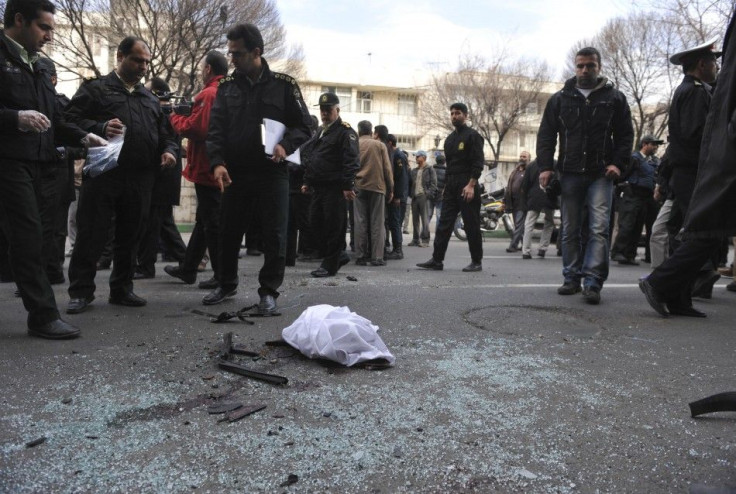U.S. Denies Role in Iran Nuclear Scientist's Assassination

The United States denied involvement in the assassination of a nuclear scientist in Iran Wednesday.
Mostafa Ahmadi Roshan, a chemistry professor and a director at the Natanz uranium enrichment facility, was killed along with his driver in Tehran when unknown attackers put a magnetic bomb on his car. Iran quickly blamed the attack on Israel and the United States, calling it a terrorist act [that] was carried out by agents of the Zionist regime [Israel] and by those who claim to be combating terrorism [U.S.].
I want to categorically deny any United States involvement in any kind of act of violence inside Iran, Secretary of State Hillary Rodham Clinton told reporters.
We believe there has to be an understanding between Iran, its neighbors and the international community that finds a way forward for it to end its provocative behavior, end its search for nuclear weapons and rejoin the international community and be a productive member of it.
Roshan was the fourth nuclear scientist to be killed by a car-bombing Iran in the past two years. Tehran University professor Masoud Ali-Mohammadi was killed in when a rigged motorcycle exploded next to him in January 2010, and in November 2010 professors and nuclear scientists Majid Shahriari and Fereydoun Abbasi were killed by a car bomb that was also blamed on Israel.
National Security Council spokesman Tommy Vietor also insisted at the U.S. was not involved in any way and also condemned Wednesday's assassination.
The United States had absolutely nothing to do with this. We strongly condemn all acts of violence, including acts of violence like this, Vietor told the BBC.
Israel also denied responsibility but seemed to welcome the murder. According to the BBC, military spokesman Brig. Gen. Yoav Mordechai wrote on his Facebook page that he didn't know who took revenge on the Iranian scientist but I am definitely not shedding a tear.
But Iran's state news agency Fars said a source had corroborated Israel's involvement.
My own confidential Israeli source confirms today's murder was the work of the Mossad and MEK, as have been a number of previous operations I've reported here, Richard Silverstein wrote on his blog Tikun Olam. The MEK (Mujahadeen-e-Khalq) is an Iranian exile group based in Iraq that is listed as a terrorist organization by the State Department, but many prominent and powerful Americans have been lobbying on its behalf.
Silverstein is called a senior Jewish American journalist, but the Seattle-based writer is a somewhat controversial figure. He has been condemned by the Israeli government and has been blasted as an ideologue, not a journalist who spreads rumors without checking them by Israeli military reporter Yossi Melman. But Silverstein has also been praised by Jewish publications such as The Forward because he bypasses Israeli censorship.
On Wednesday, Clinton also addressed Iran's threats to close the Strait of Hormuz, the shipping lane in the Persian Gulf through which 40 percent of the world's oil passes.
Iran threatened to close the Strait in response to new sanctions signed into law by U.S. President Barack Obama in an effort to put an end to Iran's nuclear program.
The provocative rhetoric coming out of Iran in the last week has been quite concerning, Clinton said. It has caused us and many of our partners in the region and around the world to reach out to the Iranians to impress upon them the provocative and dangerous nature of the threats to close the Straits of Hormuz.
This is an international waterway. The United States and others are committed to keeping it open. It is part of the lifeline that keeps oil and gas moving around the world, she added. It's also important to speak as clearly as we can to the Iranians about the dangers of this kind of provocation.
© Copyright IBTimes 2024. All rights reserved.











